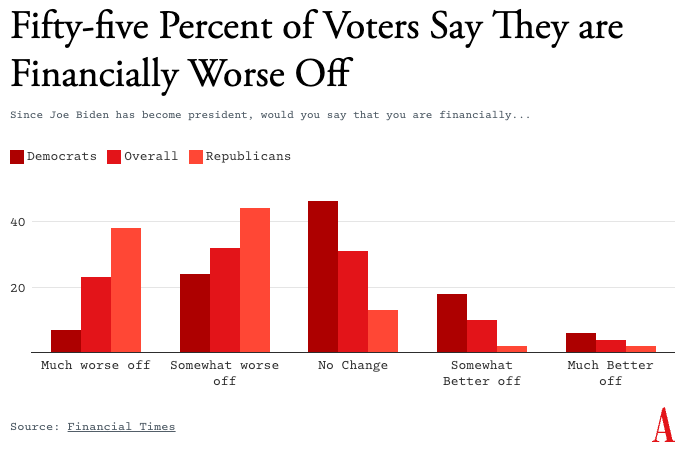Unleashing Success: The Pygmalion Effect in Business
I was reading a recent article in the Atlantic by Jerusalem Demas discussing his 7 reasons why 55% of Americans feel worse off, even though inflation has simmered, wage growth has increased, and unemployment is at historic lows. All 7 explanations he provides are logical but the one that intrigued me was on expectations.
In the article he states, “During the pandemic, the federal government provided Americans unprecedented support. It stopped evictions; it dropped thousands of dollars into personal bank accounts; it paused student-loan repayments; it gave aid to unemployed workers; it provided tax breaks to parents of young children, and billions in aid to state and local governments. In doing so, the government may have raised expectations for what a “good economy” is supposed to feel like. Given all of those supports, many people actually are doing worse on some measures than they were a few years ago: Real disposable personal income reached a high in March 2021 and has declined since then. In May, the economics writer Joey Politano noted that Americans had spent nearly all of the money they’d set aside during the pandemic. Put another way: In 2020 and 2021, Americans acquired new sources of income, which have since disappeared. If I found $10,000 on the ground one year, and was not so fortunate the next, I would be correct in telling a pollster that I’m worse off, even if I got a $5,000 raise.”
The positions the government undertook during Covid are simply not sustainable. Likewise, sustaining the increases Indie retailers achieved in the aftermath may not also be sustainable. However, what is realistic is to not give back the new level of volume that was achieved, and also to look to build from that new baseline. It made me think again about how powerful expectations are on influencing outcomes and behaviors because of our perceptions.
Success is often the culmination of strategy, innovation, and hard work.
Overall sales for M1 clients dropped an average of 4.6% in October. Going deeper though 37% of clients had an increase. What caused this? Do they have higher expectations, are they in a vertical that is trending, is their inventory fresher? Do they play offense harder than others? Do they and their teams exercise a set of expectations that are higher than others? Expectations as I discuss below do have an impact on business performance.
Something in my mind reminded me of the intriguing phenomenon called the Pygmalion and Golem Effect on education and business. It may have been an article I read or a memory from a chapter in a psychology class I took in college back in the early seventies.
Taking a refresher on both effects here is a synopsis:
The Pygmalion Effect can play a pivotal role in shaping outcomes within organizations. Named after the ancient Greek myth of Pygmalion, who sculpted a statue that came to life due to his unwavering belief in its potential, the Pygmalion Effect explores the powerful impact of expectations on individual and team performance.
At its core, the Pygmalion Effect posits that people tend to perform better when they are expected to do so. In a business context, this translates into leaders influencing their teams' success through the expectations they set. When managers believe in the capabilities of their employees and communicate these positive expectations, a self-fulfilling prophecy often takes shape. Employees, feeling the trust and confidence of their leaders, are inspired to reach higher levels of performance and achievement.
The Pygmalion Effect is a dynamic force that can be harnessed to boost employee morale, enhance productivity, and foster a positive workplace culture. Leaders who actively convey high expectations demonstrate a commitment to their team's growth and development. This not only motivates employees to strive for excellence but also creates an environment where challenges are seen as opportunities for learning and advancement.
Conversely, the Golem Effect, the dark counterpart of the Pygmalion Effect, warns of the detrimental impact of low expectations. When leaders harbor negative beliefs about their team members, performance tends to suffer as employees internalize these expectations and may struggle to meet their potential.
As retailers seek to build off the advances made post-pandemic, fostering a positive and supportive atmosphere, can unlock untapped potential, creating a culture of success that propels both individual and collective achievements to new heights. Recognizing and leveraging the power of positive expectations, leaders can sculpt a thriving, dynamic workplace where success becomes not just a goal but a self-fulfilling prophecy.
Wishing you all a very happy and prosperous holiday season.
Onwards, and Upwards,
Marc Weiss - Co-founder, Management One

